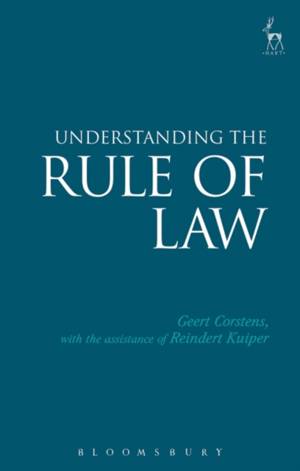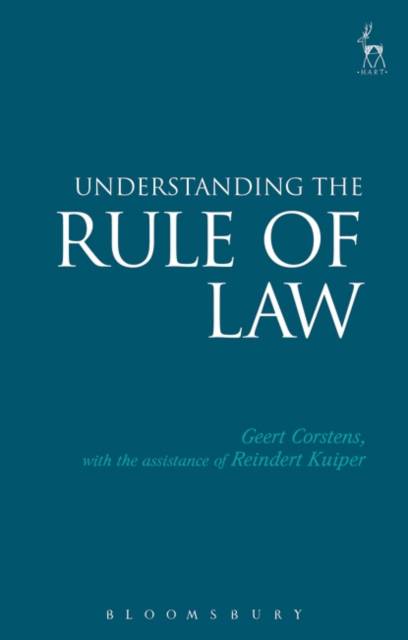
Bedankt voor het vertrouwen het afgelopen jaar! Om jou te bedanken bieden we GRATIS verzending (in België) aan op alles gedurende de hele maand januari.
- Afhalen na 1 uur in een winkel met voorraad
- In januari gratis thuislevering in België
- Ruim aanbod met 7 miljoen producten
Bedankt voor het vertrouwen het afgelopen jaar! Om jou te bedanken bieden we GRATIS verzending (in België) aan op alles gedurende de hele maand januari.
- Afhalen na 1 uur in een winkel met voorraad
- In januari gratis thuislevering in België
- Ruim aanbod met 7 miljoen producten
Zoeken
Omschrijving
The 'rule of law' is increasingly regarded as integral to liberal democracy, and its significance is frequently discussed by lawyers, academics, politicians and the media. But the meaning of the phrase is not always clear. What does 'the rule of law' mean exactly? And why is it so important to the democratic state and, above all, its citizens?
In Understanding the Rule of Law, former president of the Dutch Supreme Court Geert Corstens paints a lively and accessible portrait of the rule of law in practice. The focus is on the role of the courts, where the tensions in a democratic state governed by the rule of law are often discussed and resolved. Using landmark judgments, Geert Corstens explains what judges do and why their work is valuable. What do minimum sentences and prisoners' voting rights have to do with each other? Why is there no easy answer to the question of whether a paedophile organisation should be banned? Why is it no joke when the Italian politician Silvio Berlusconi calls the judiciary 'the cancer of democracy'? Understanding the Rule of Law provides the answers to these and many other questions, and is essential reading for anyone interested in the state of democracy today.
In Understanding the Rule of Law, former president of the Dutch Supreme Court Geert Corstens paints a lively and accessible portrait of the rule of law in practice. The focus is on the role of the courts, where the tensions in a democratic state governed by the rule of law are often discussed and resolved. Using landmark judgments, Geert Corstens explains what judges do and why their work is valuable. What do minimum sentences and prisoners' voting rights have to do with each other? Why is there no easy answer to the question of whether a paedophile organisation should be banned? Why is it no joke when the Italian politician Silvio Berlusconi calls the judiciary 'the cancer of democracy'? Understanding the Rule of Law provides the answers to these and many other questions, and is essential reading for anyone interested in the state of democracy today.
Specificaties
Betrokkenen
- Auteur(s):
- Uitgeverij:
Inhoud
- Aantal bladzijden:
- 152
- Taal:
- Engels
Eigenschappen
- Productcode (EAN):
- 9781509903634
- Verschijningsdatum:
- 1/10/2017
- Uitvoering:
- Paperback
- Formaat:
- Trade paperback (VS)
- Afmetingen:
- 137 mm x 213 mm
- Gewicht:
- 204 g

Alleen bij Standaard Boekhandel
+ 101 punten op je klantenkaart van Standaard Boekhandel
Beoordelingen
We publiceren alleen reviews die voldoen aan de voorwaarden voor reviews. Bekijk onze voorwaarden voor reviews.









